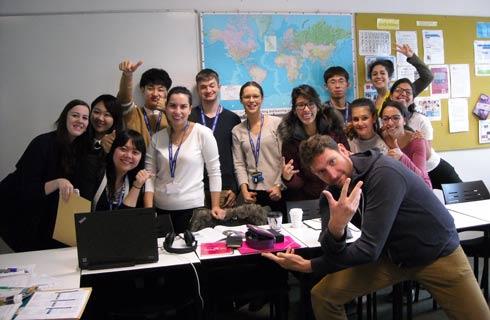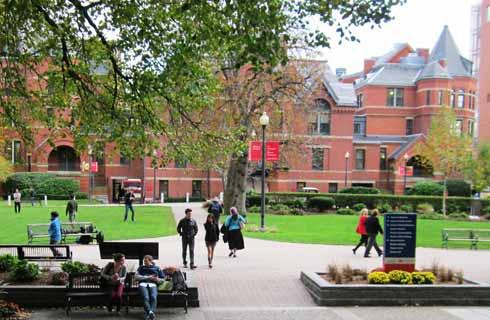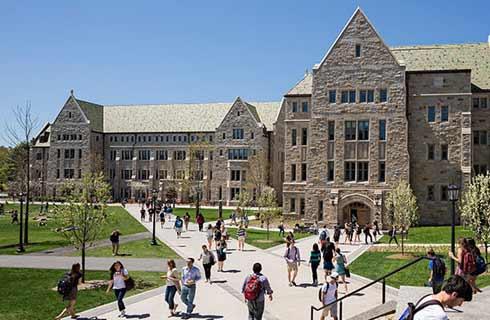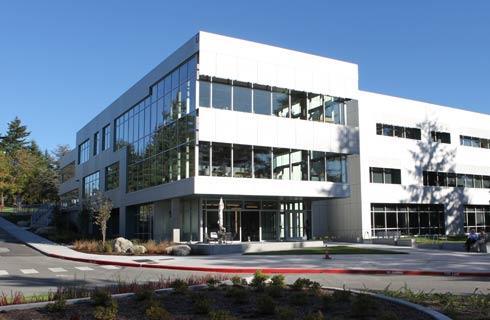化学工程哲学博士(协作水计划)
Doctor of Philosophy in Chemical Engineering - Water

学历文凭
Ph.D.

专业院系
Department of Chemical Engineering

开学时间

课程时长

课程学费

国际学生入学条件
IDP—雅思考试联合主办方

雅思考试总分
7.5
- 雅思总分:7.5
- 托福网考总分:100
- 托福笔试总分:160
- 其他语言考试:PTE (Academic) - 60 (writing 60, speaking 60)
CRICOS代码:
申请截止日期: 请与IDP联系 以获取详细信息。
课程简介
A chemical engineering degree from the University of Waterloo provides an excellent starting point to launch a variety of rewarding careers. Chemical engineers are at the forefront of technology, and their role in modern society is becoming increasingly important. Chemical engineers design, implement and supervise industrial processes where matter undergoes change, including in the pharmaceutical, pulp and paper, food or plastics industries, among others. We also play a major role in the emerging field of nanotechnology, with applications in the development of new materials and devices. We develop new processes to prevent pollutants from being released into our environment or to remove them after they are already there. We decrease energy use by increasing the efficiency in fossil fuel refining plants or by experimenting with new forms of energy generation and storage. Increasingly chemical engineers are also involved in the control, manipulation and production of biological systems, which have many important applications in the area of health care and food production. The professors in Waterloo's Department of Chemical Engineering are leaders in their fields. They will expose you to the latest developments and help you obtain a solid basis in the engineering fundamentals.The Collaborative Water Program promotes the development of interdisciplinary perspectives on water. This unique program allows students to complement their chemical engineering training with core courses that focus on integrated water management.
相关申请
 预科
预科 奖学金
奖学金 实习机会
实习机会 在校学习
在校学习 跨境学习
跨境学习 校园授课-线上开始
校园授课-线上开始 在线/远程学习
在线/远程学习
开学时间&学费
学费信息仅供参考,请与IDP联系以获取详细信息
| 开学时间 | 时长 | 学费 | 地点 |
|---|
学校排名

世界排名201
数据源:
泰晤士高等教育世界大学排名
关于滑铁卢大学

滑铁卢大学是加拿大滑铁卢市的一家著名大学,是一所以研究为主的中等大小的公立大学,创建于1957年。以数学、计算机科学、工程学而闻名。该校位于安大略省的西南面的滑铁卢市,占地面积约为1000英亩。滑铁卢大学成立至今,仅数十年便跻身加拿大名校之列,是加拿大发展最快的学校。2011年到2013年,该校一直稳居麦克林杂志评选的加拿大综合性大学排名的第三位,是北美地区最优大学之一,其数学,计算机科学和工程学科教学水平居世界前列。特别是做为北美地区第一个经认可建立数学系的大学,拥有世界上最大的数学系以及世界上最大的合作办学项目。学校共授予100多个本科学位专业,28种硕士及博士学位专业,学校的代表队曾多次获得ACM 国际大学生程序设计竞赛的冠军。
本校相关课程

系统设计工程哲学博士
学历文凭
Ph.D.
开学日期
课程费用总额


系统设计工程工程学硕士
学历文凭
Masters Degree
开学日期
课程费用总额


社会学文学硕士[仅课程]
学历文凭
Masters Degree
开学日期
课程费用总额


Doctor of Philosophy in Religious Studies
学历文凭
Ph.D.
开学日期
课程费用总额


运动机能学博士-工作与健康
学历文凭
Ph.D.
开学日期
课程费用总额


娱乐与休闲研究哲学博士
学历文凭
Ph.D.
开学日期
课程费用总额

其他相关课程

化学工程哲学博士-纳米技术
 滑铁卢大学
滑铁卢大学学历文凭
Ph.D.
开学日期
课程费用总额


化学工程应用科学硕士-纳米技术
 滑铁卢大学
滑铁卢大学学历文凭
Masters Degree
开学日期
课程费用总额


化学工程博士学位
 滑铁卢大学
滑铁卢大学学历文凭
Ph.D.
开学日期
课程费用总额


化学工程学硕士
 滑铁卢大学
滑铁卢大学学历文凭
Masters Degree
开学日期
课程费用总额


化学工程应用科学硕士
 滑铁卢大学
滑铁卢大学学历文凭
Masters Degree
开学日期
课程费用总额


化学工程学士学位
 滑铁卢大学
滑铁卢大学学历文凭
Bachelor Degree
开学日期
课程费用总额










